Head of Black Mountain Institute changing perceptions about Las Vegas
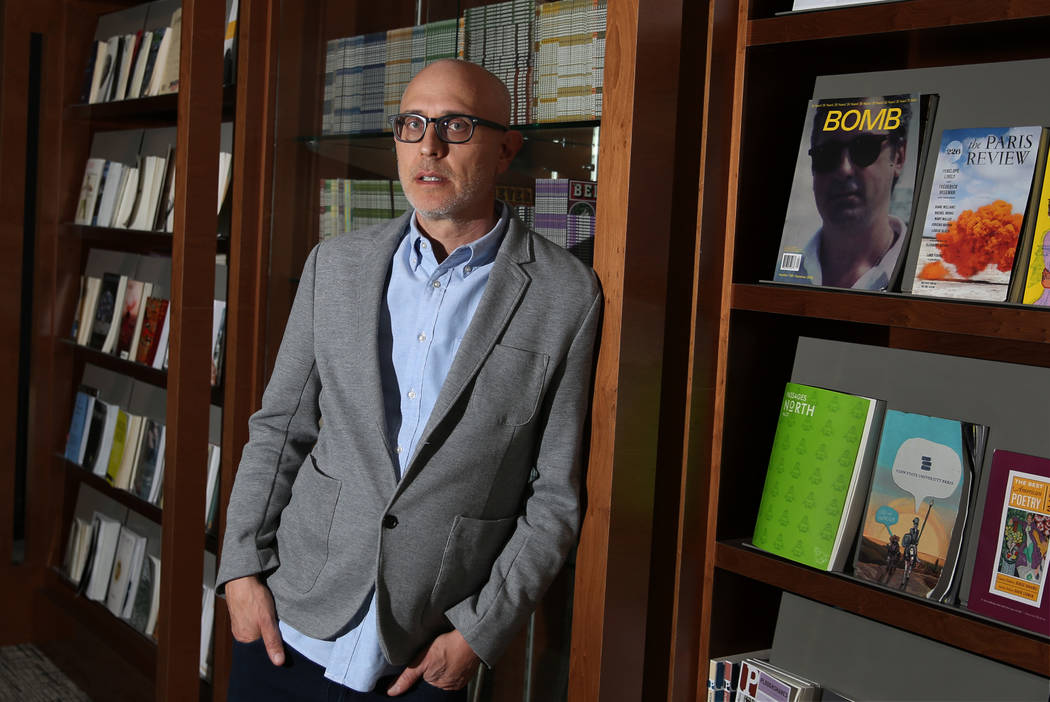
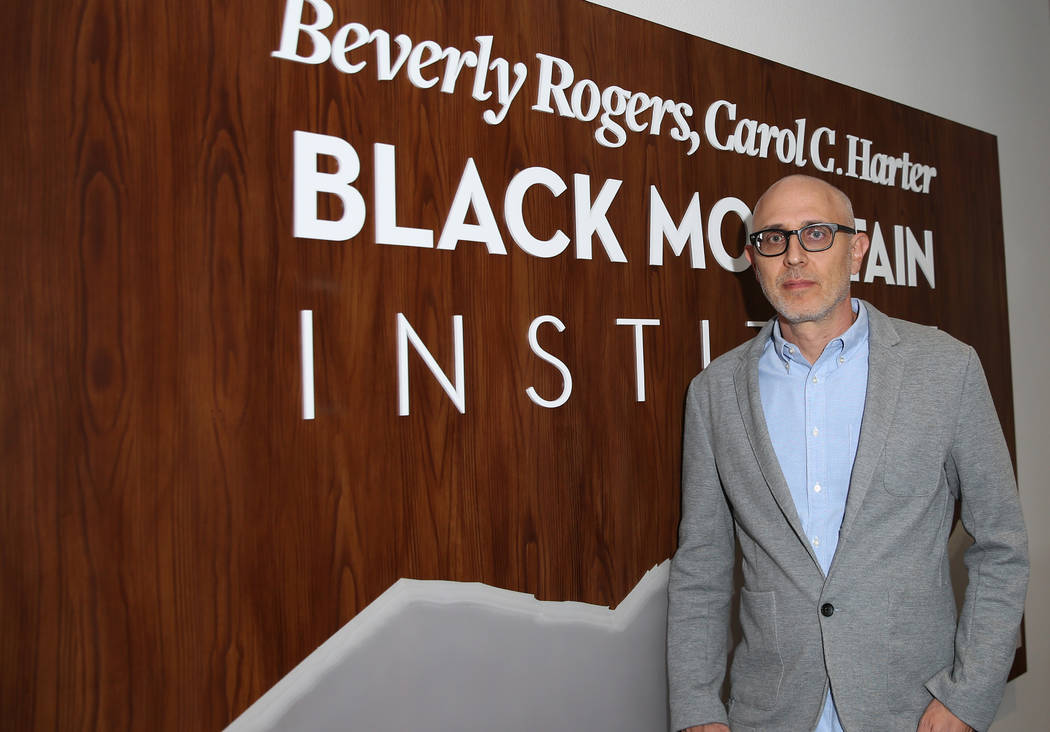
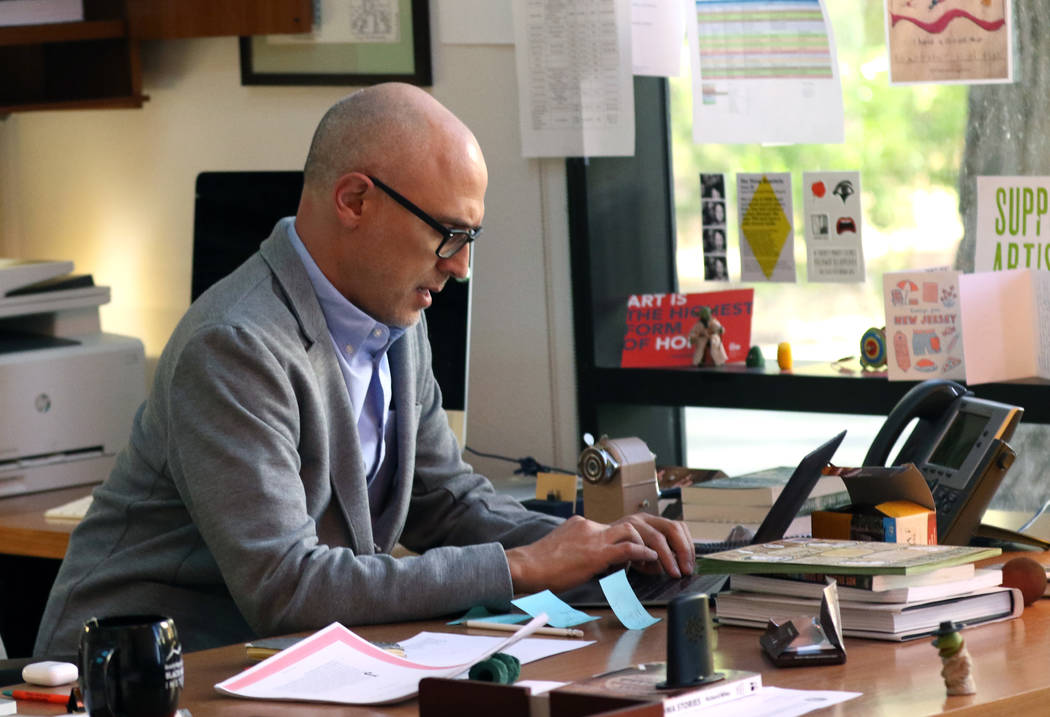
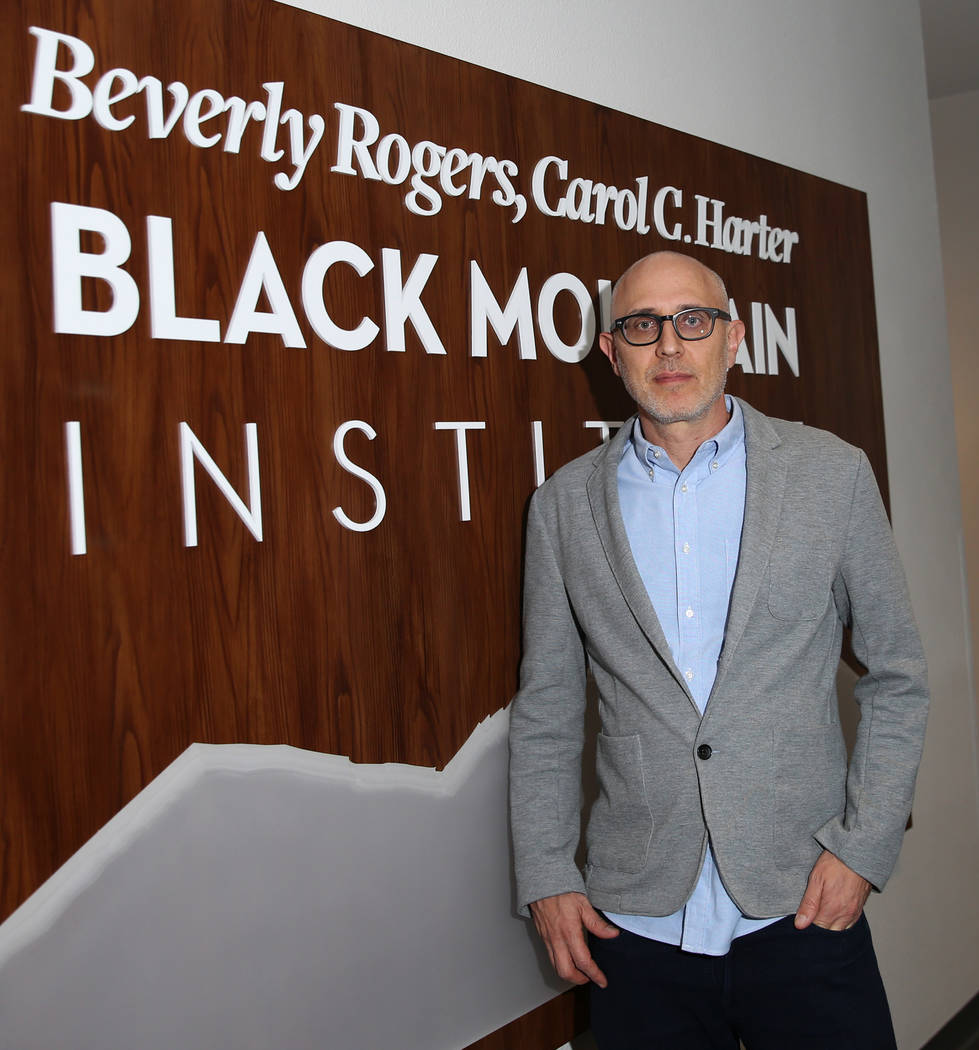
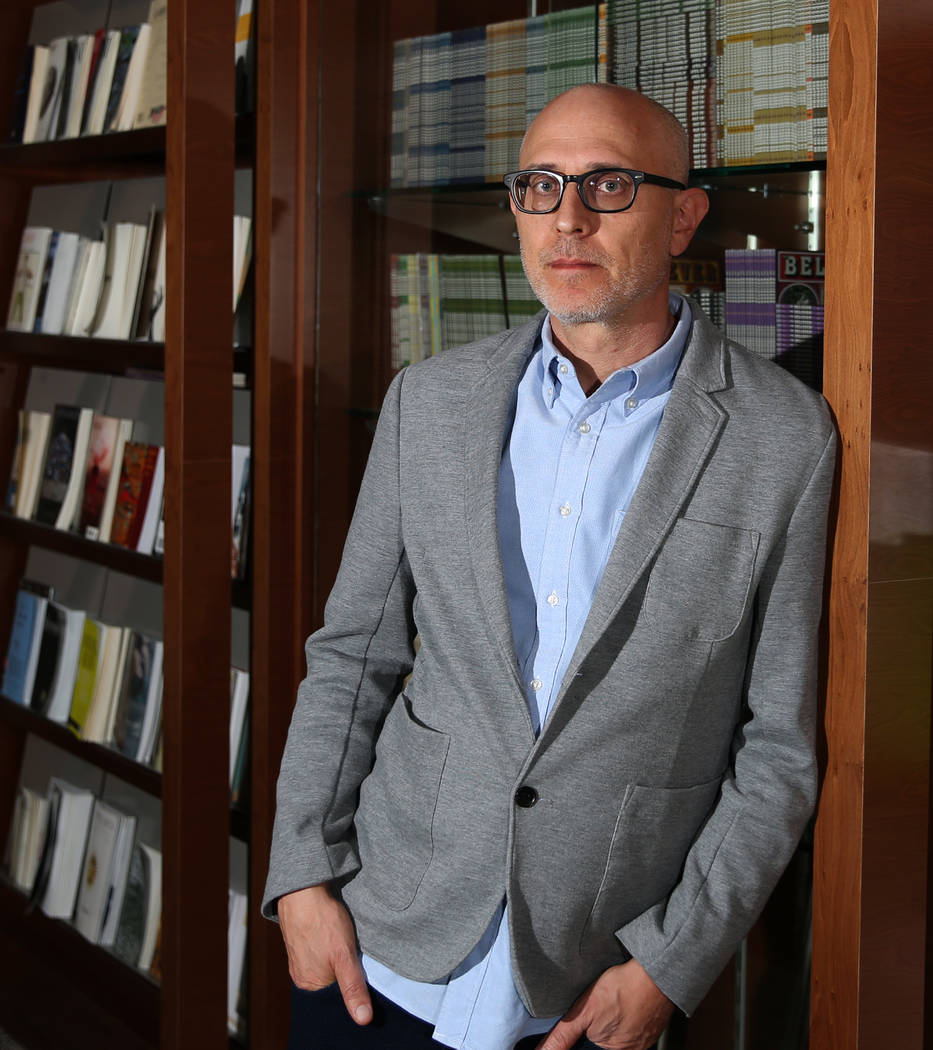
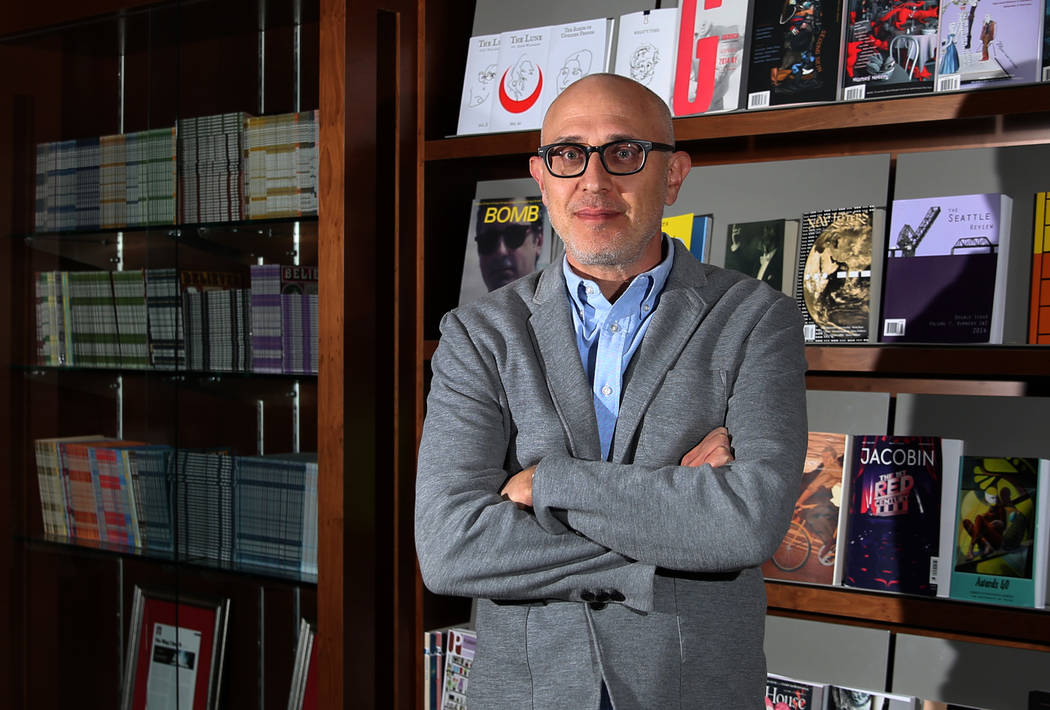
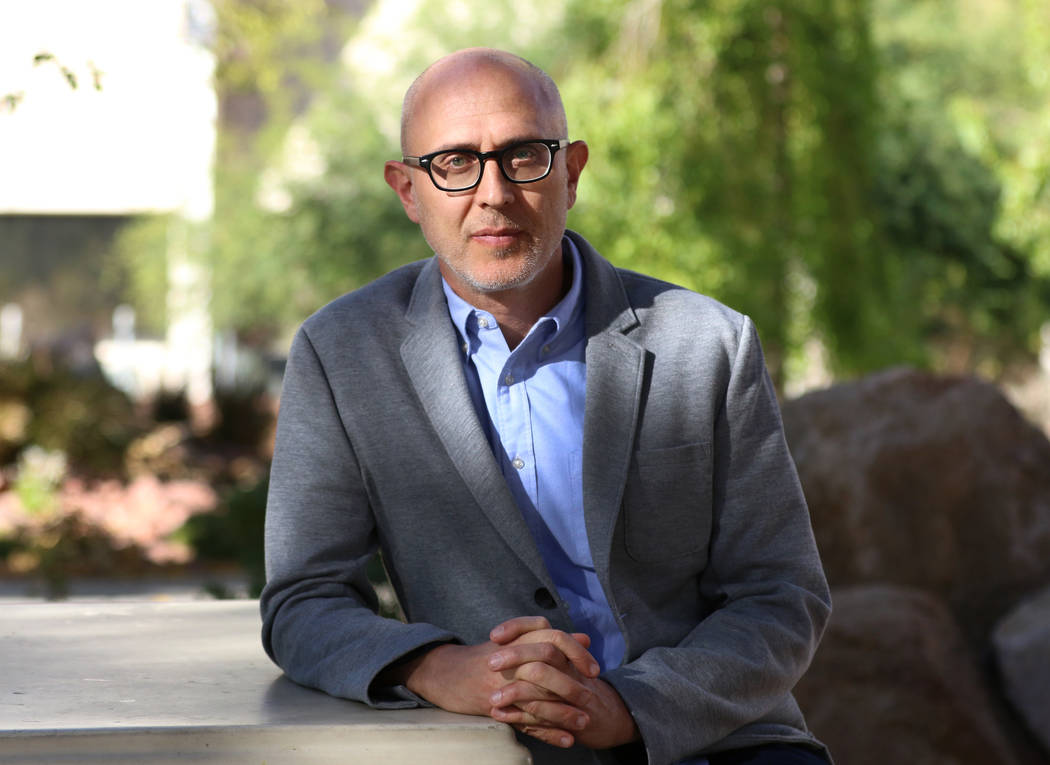
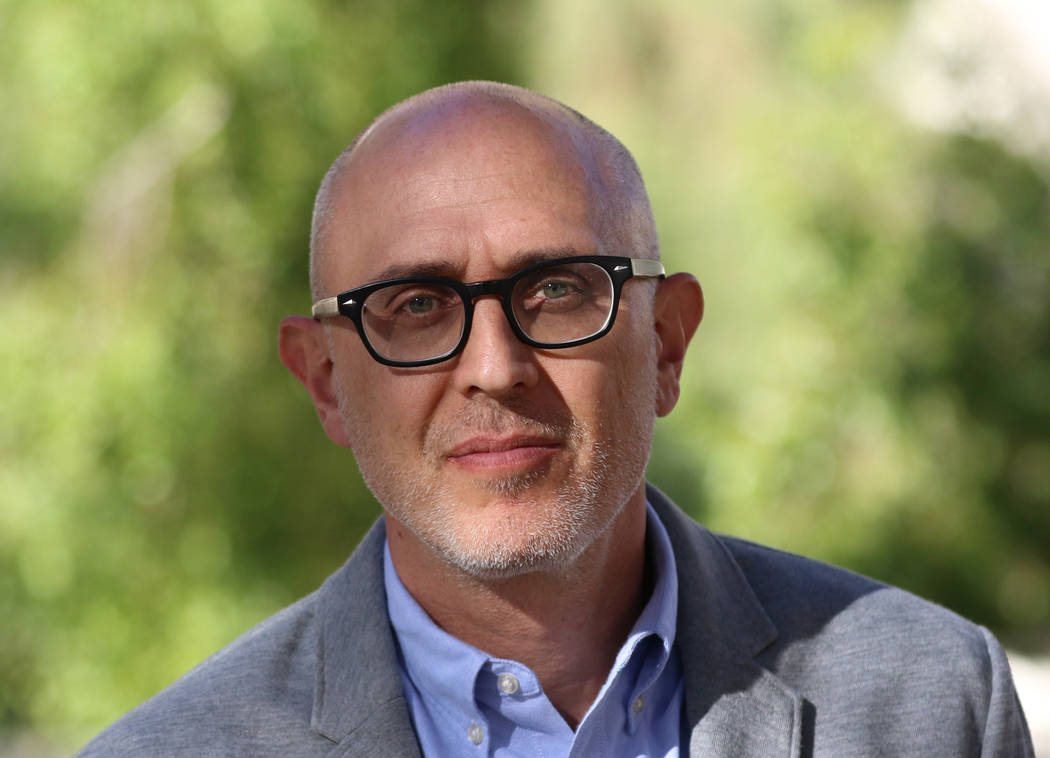

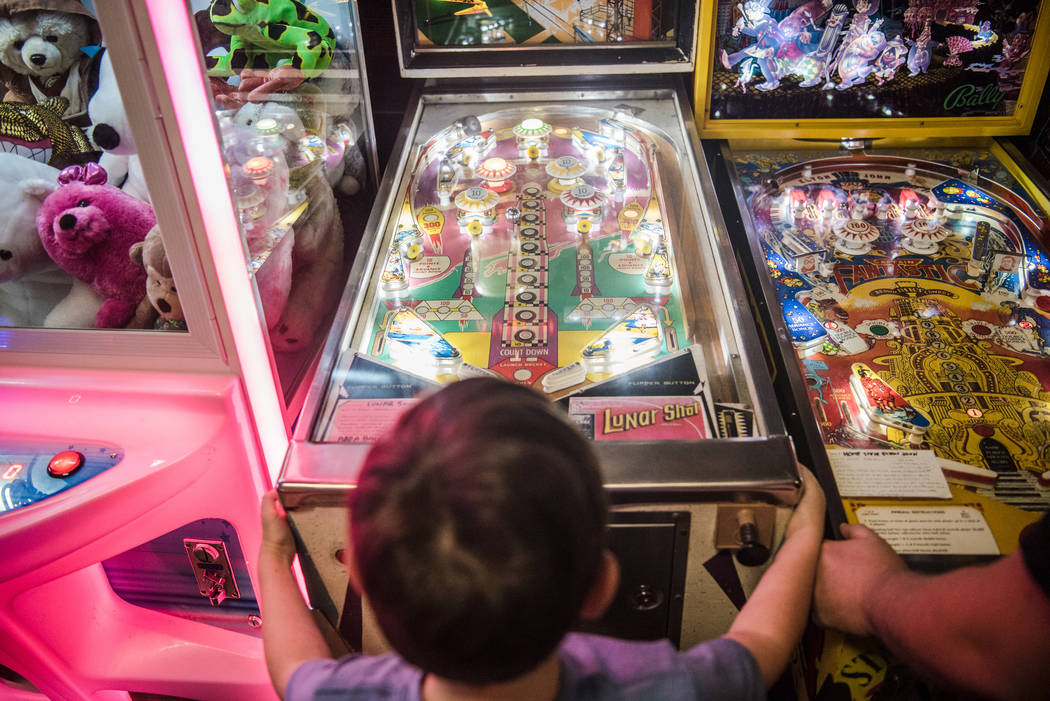
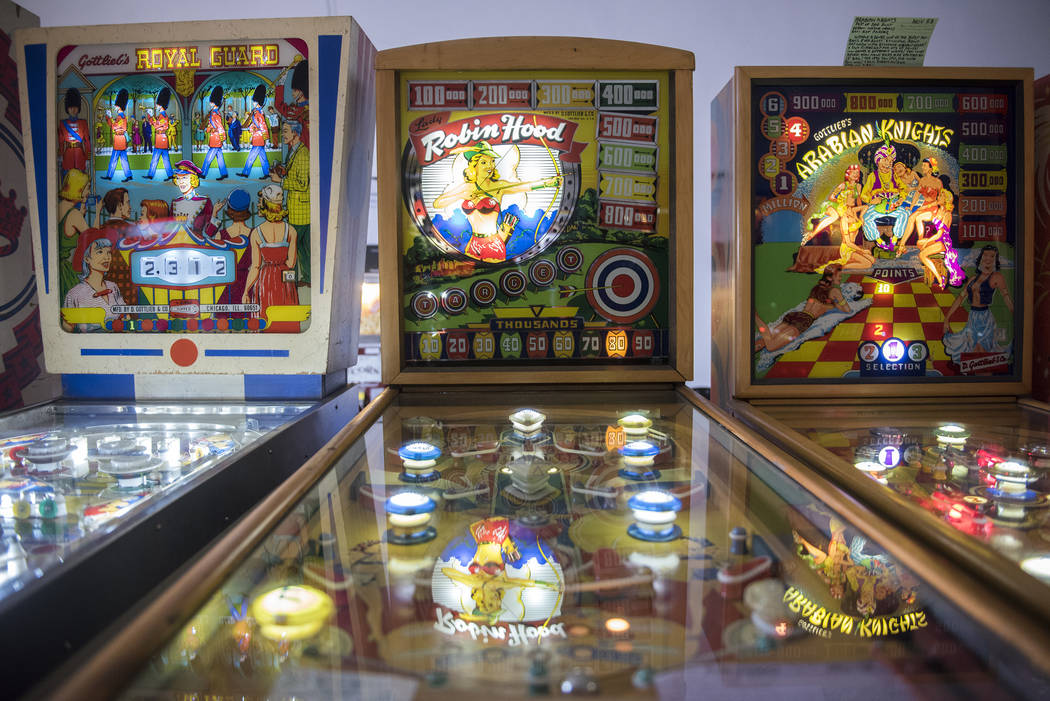
Vegas Voices is a weekly series highlighting notable Las Vegans.
As one of the city’s cultural ambassadors, Joshua Wolf Shenk knows exactly what he’s up against when trying to shape the public perception of Las Vegas into that of a bustling arts hub.
After all, before he moved here in August 2015, his impression of Las Vegans was derived almost entirely from the cocktail waitresses who brought Jon Favreau and Vince Vaughn back to their mobile home in “Swingers.”
“I had this image — it was entirely unreflected upon, and I never examined it critically — but I think I just had this image of, like, vast seas of trailers. And a conception of a city life, of a civic infrastructure, of an arts scene, these things were quite distant.”
Shenk, 47, is an author, essayist and the artistic and executive director of UNLV’s Black Mountain Institute. The literary hub, named after North Carolina’s experimental Black Mountain College, is tough to define, even for him.
“The existing mission statement is to bring writing and the literary imagination into the heart of public life,” Shenk says. “It’s not art for art’s sake. It’s the applied value of art and kind of making us better communities and better human beings.”
Under Shenk’s watch, BMI has brought the literary magazine The Believer, which boasts subscribers in 60 countries, into the fold. The institute also is sponsoring Wednesday’s local debut of “The Moth Mainstage” at Artemus Ham Hall. The curated celebration of five storytellers is a live offshoot of “The Moth,” as well as its popular radio show and podcast, which counts Shenk among its founding advisers and early board members.
Shenk speaks of “The Moth” in the sort of glowing terms usually reserved for one of those alien hybrid babies that Mulder and Scully would investigate on “The X-Files,” try to debunk and then ultimately embrace with a mixture of awe and reverence.
“It’s a force of convergence and connection for disparate people around these values of empathy and understanding, with a lot of humor, too,” he says.
He also sprinkles his sentences with words such as “ethos” and “synecdoche” and is quite proud of his webbed toes, a genetic anomaly he shares with his 8-year-old son.
Review-Journal: Before you moved here, had you spent much time in Las Vegas?
Shenk: Very little. I think I was in Vegas maybe three times in my late 20s and early 30s. Once for my grandmother’s 80th birthday. She wanted to go to Bellagio. I mainly remember the Bellagio spa being impressive.
When you first heard about what they were doing at Black Mountain Institute, did it clash with your perception of the city?
One way to describe it is like that dream when you encounter a new room in your house. It’s just, like, “Oh my God, this is here!” I really had no idea that anything existed. I’ve often reflected that there was kind of a low-grade puzzlement when I used to visit Las Vegas about where all these people lived.
Has it been hard trying to change the minds of outsiders who insist Las Vegas is this kind of cultural wasteland?
I’m over the surprise. But I continue to represent the institute to people who are still a little bit bewildered by the prospect of who we are and what we’re doing. Although I will say, less and less. There’s been quite a shift in the time I’ve been at BMI and a kind of embracing of our work, in our corner of the world anyway, the kind of corner of literary and intellectual circles.
One of the components of BMI is the City of Asylum program, which provides a safe haven for writers facing imprisonment or death in their home countries because of their art.
I always say that’s the foundation of what we do, because if you care about the arts, you do need to begin with the question of whether people are free to make art.
What’s it like being able to provide that sort of new start?
It’s very meaningful. What we do is a drop in the bucket for the need. We’re involved in a conversation about freedom of expression and of oppression of artists and writers that’s very meaningful. This is something I’m quite keen on amping up. … Cherishing those freedoms is important because you never know when they may be under threat, anywhere around the world, including our country.
What do you hope audiences take away from the local debut of “The Moth”?
Just a feeling in the room that’s possible when you have true stories told that are a kind of combustion engine for empathy and for that kind of curious discovery and what it’s like to live another life. And that teaches you about the life that you’re living.
Can you talk a little about what it’s been like to have achieved so much in life despite having been born with webbed toes?
Despite? It’s all because of the webbed toes, dude! That’s my only claim to any kind of superpower. I often tell my son, that was the first thing I checked after I knew that he was breathing and healthy. I looked at his toes and was so delighted and relieved. … In my retirement, I’m going to lean into the international syndactyly community — which is the medical term for webbed toes — and connect with all my brethren.
Getting to know: Joshua Wolf Shenk
Favorite book: “I think if I had to take a single book with me right now to a desert island, it would be the Library of America edition of James Baldwin’s essays. … He’s so germane and relevant and urgent and timeless, while also really speaking to the politics of his time.”
Favorite thing to do when you aren’t working: “Listen to music, and I play a little bit, mostly as a way of experiencing the songs that I love. I play very simple piano, and I play very simple acoustic guitar.”
Place you always take visitors: “I have a whole tour that I take people on. … I love the Pinball Hall of Fame. I love the Neon Museum. The Writer’s Block of course. That would be the first place I’d take anybody.”
Favorite restaurant: Raku. “I spent a fair amount of time in Japan. I’m an aficionado of Japanese food. You walk straight out of that strip mall into Tokyo. It’s crazy. And it’s so unpretentious.”
Something in pop culture you’re obsessed with: “The most recent one was ‘Comedians in Cars Getting Coffee.’ … In a dozen different ways I’m hugely delighted by that.”
Drawn to ‘The Moth’
From its humble beginnings in St. Simonscq Island, Georgia — where founder George Dawes Green grew up and swapped tales on a back porch, the screen of which had a hole that allowed moths to journey toward the light — “The Moth” has become a storytelling phenomenon.
“The Moth Radio Hour,” in which everyday people share true experiences, airs on more than 480 stations nationwide, while “The Moth Podcast,” launched in 2008, boasts 52 million downloads a year. The live offshoot, “The Moth Mainstage,” makes its Las Vegas debut at 7:30 p.m. Wednesday in Artemus Ham Hall at UNLV.
The five storytellers are led by the usually silent Teller. He’ll be joined on the program by Erica Vital-Lazare, creative writing professor at the College of Southern Nevada; Chenjerai Kumanyika, an assistant professor at Rutgers University and the co-host of the Peabody Award-winning podcast “Uncivil”; Dr. Vikram Krishnasamy of the Centers for Disease Control and Prevention in Atlanta; and Ruby Cooper, a grandmother who teaches and coaches storytelling in Los Angeles.
For tickets, see bit.ly/2PQBpje.
Contact Christopher Lawrence at clawrence@reviewjournal.com or 702-380-4567. Follow @life_onthecouch on Twitter.













